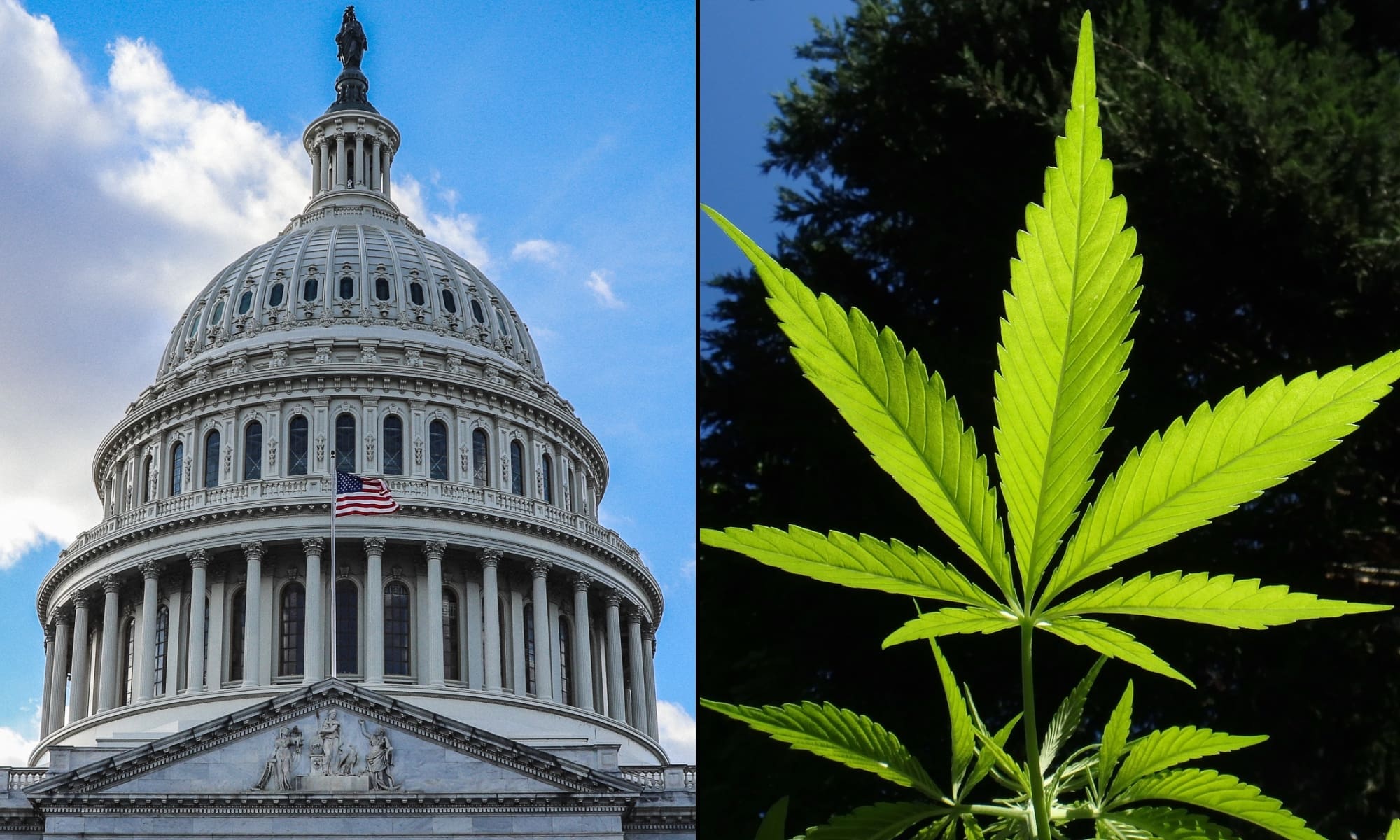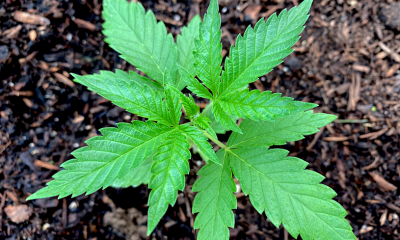Politics
70 Percent Of Top Capitol Hill Staff Doubt Any Marijuana Reform Will Pass This Congress, Banking Or Otherwise, Newly Released Survey Shows

As the year comes to a close and lawmakers prepare to recess, newly released survey data reveals that Capitol Hill staff and lobbyists are so far vindicated in their pessimism about the prospects of marijuana reform in the 118th Congress.
Asked whether they think any type of cannabis reform would pass during this two-year Congress, 71 percent of top legislative staff that participated in the Canvass Capitol Hill Survey released by Punchbowl News on Tuesday said it was “unlikely.”
That’s roughly consistent with separate data from a September survey of staffers that asked specifically about the prospects this year for a bipartisan marijuana banking bill that cleared a Senate committee but has not advanced further despite repeated pledges from leadership. Just 13 percent said it would pass before the end of 2023.
Our survey respondents have been spot-on all year round. Open to read their predictions for the second half of the 118th Congress, including on impeachment, Ukraine and border security funding, bank CEO clawback pay, cannabis banking, AI and more.
— Punchbowl News (@PunchbowlNews) December 19, 2023
For the newly released survey, which was conducted back in April but is being highlighted now in an end-of-the-year report, meanwhile, staff and lobbyists answered a broader question: “How likely or unlikely do you believe it is that the 118th Congress will pass reforms to federal cannabis law, such as the SAFE Banking Act?”
Even though the question more widely inquires about passage of any marijuana reform—beyond just banking—for the rest of the 118th Congress ending this time next year, the mood was still sobering. Only 19 percent of congressional workers—including chiefs of staff, legislative directors, communications directors and other top aides—said it was “likely.”

Via Punchbowl News.
Staffers for Democratic offices were somewhat more optimistic, with 29 percent calling the prospect of advancing cannabis policy issues likely, compared to 12 percent who said they weren’t sure and 59 percent who said it was unlikely.
Among staff for Republican offices, only nine percent said it was likely, eight percent said they weren’t sure and 83 percent said it was unlikely.
K Street lobbyists who answered the same question in March were less certain about how Congress would navigate marijuana reform. Eighteen percent said they felt it was “likely” to happen—but more said they were unsure (23 percent) compared to staff, while 59 percent said it was “unlikely.”
Interestingly, Republican lobbyists were slightly more apt to say that cannabis reform was “likely” to advance than Democratic ones were, in contrast to the partisan breakdown of Hill staffers.
While the questions were open-ended with respect to the type of marijuana legislation that might or might not pass this Congress, it cited the cannabis banking bill as an example. The incremental reform has long been viewed as low-hanging fruit that enjoys unique bipartisan support, having passed the House in some form seven times in recent sessions.
The revised Secure and Fair Enforcement Regulation (SAFER) Banking Act passed the Senate Banking Committee in September, renewing hopes among advocates and stakeholders that it could clear the floor this year before moving to the GOP-controlled House. However, a variety of factors kept that from happening in time for 2023, including lingering disagreements among lawmakers about certain provisions as well as unrelated issues such as timing and House leadership changes.
The bill could still move in the second half of the two-year Congress, of course. But as the divided legislature stalemates on funding for foreign aid amid an immigration-related deadlock, likely pushing the issue to 2024, questions of timing and legislative priorities sow additional doubts about marijuana policy reform.
Outside of Capitol Hill, however, advocates are still holding out hope that an administrative review into cannabis scheduling that President Joe Biden directed will soon result in a loosening of federal marijuana laws.
The U.S. Department of Health and Human Services (HHS) has recommended moving cannabis from Schedule I to Schedule III of the Controlled Substances Act (CSA), and now it will be up to the Drug Enforcement Administration (DEA) to make the final call.
Photo courtesy of Chris Wallis // Side Pocket Images.
















